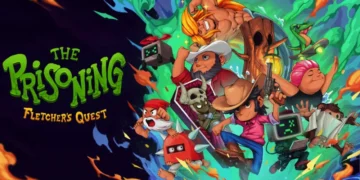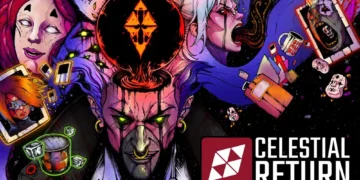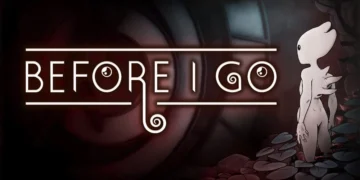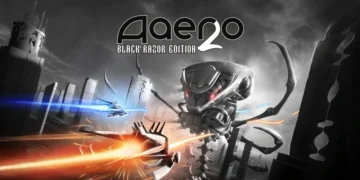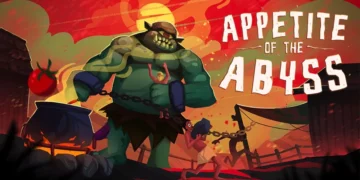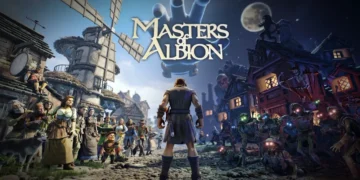Developer: Nihon Falcom
Platforms: PlayStation 4 (Reviewed), PC, Vita
Genre: Action, RPG
Published by: NIS America, Inc.
Ys VIII: Lacrimosa of Dana is the latest in a long-running series that dates back to PC-88 days. The majority of the games in the world of Ys have yet to see a western release, but over the last decade more and more entries in the series have made it to our shows. Indeed, Ys became a staple of the Playstation Vita’s vast library of JRPGs. The question is whether its first proper PS4 outing brings anything new to the table.

The story of Ys VIII is quite friendly for newcomers due to its self-contained nature. Our silent protagonist, Adol Christin, is your typical adventurer straight out of a Dungeons and Dragons handbook. He travels from place to place, righting wrongs and exploring the world for the sheer joy of it. We find him having taken up with a band of sailors to work his way across the seas. After some light patrol work, the ship finds itself under attack from a giant sea creature and despite his best efforts, Adol ends up marooned on the cursed island of Seiren Island. While trying to find a means of escape, Adol teams up with fellow shipwreckees as they battle to survive the monster-riddled island and re-united the lost crew. Gamers are also introduced to a second playable character in the form of the titular Dana, a mysterious girl who appears in Adol’s dreams. It’s only through the exploration of both characters that the secrets of the island begin to unfurl.

Unfortunately, there’s nothing revolutionary about this plot or even the characters themselves. Then again, Ys VIII is not really trying to break the wheel. It is quite content with just being satisfactory. As a silent protagonist Adol doesn’t grow as a character himself and any insight we get comes from our own projections onto the character. This is fine in MMOs or where the character is supposed to be the player, but Adol is clearly meant to have a backstory and existing relationships that we are meant to care about. You can’t take real ownership over such a character. The only development or exploration comes from your party members who all fall into archetypal categories. They are fun to be around and occasionally will dish out a line or two of funny dialogue, but there is nothing memorable about them. The idea of Ys has always been to show another step on Adol’s never-ending journey, but it is exactly that open-ended perspective that prevents the game from having any weight from a story perspective. This is by no means a short game clocking in between 20-30 hours and it’s a bit galling to be asked to invest in something that’ll be subject to a soft reset in the next game. This done-in-one approach may appeal to some, but what’s the point in playing if there are no consequences for our characters?

Ys VIII’ gameplay is also characterised by a seeming unwillingness to innovate or push the envelope. It breaks the cardinal rule of game design by starting the player with the most boring of opening settings. Rather than throwing you into the action in media res it opts instead to bore you with 30 minutes of acting as a guard during the ship’s welcome banquet. Things picked up shortly thereafter, but this initial play period soured my perspective of the game. Ys VIII at many points seems to lack an appreciation for its player’s time and that is problematic.

The core gameplay of Ys VIII has you searching the island for fellow castaways while battling monsters of increasing levels of ferocity and crafting materials in your base camp. As an action RPG, players can hack and slash their way to victory. Adol and his party have a variety of special moves to help them achieve their goal with new techniques being learned over time. The more enemies you defeat the greaters your skills grow as does your resource pool. As you discover more and more survivors of the shipwreck, your home base and the facilities it offers expands. You can use the materials you’ve gathered to forge new weapons and armour. There is never any fear of being stuck for something to do as an ever expanding quest boards provides hours of distractions, but there is a constant feeling that the game is satisfied with just being good enough. Combat itself doesn’t challenge the player with a simple, almost Kingdom Hearts inspired, system that lacks any real depth or complexity. It can be incredibly empowering at times, but the pure adrenaline it inspires wears off quick.

From a presentation perspective, Ys VIII boasts a colourful, anime-style that brings its expressive characters to life. The mysterious island of Seiren is beautiful rendered with environments that truly pop. While the PS4 version naturally outshines its Vita counterpart, it is also clear that the development team have been limited by the need to make the game run on both platforms. The music of this game is inspiring with a rock-infused orchestral soundtrack that fuels each gameplay sessions. High energy anthems transition into slow, considered tracks that demand the player’s reflection. The soundtrack becomes a character in and of itself, one that I find myself enjoying the more I listen to it.
Ys VIII is a game of contradictions and that leaves this reviewer quite conflicted. In many ways it is a fun romp that emulates the feeling of a popcorn-fueled summer blockbuster and taken as such, it succeeds. Player’s will definitely find it enjoyable in the moment, but its unlikely to linger in their minds once the credits roll. If we are going to sink considerable time into these games, players need to be given something to care about the characters or at least be given a system of sufficient depth to keep them engaged. The PS4 and Vita sphere is flooded with similar games and its audience have simply come to expect more. Ys VIII fails to set itself apart making this island adventure fall short of the tropical paradise it aspires to.
Overall: 6/10
Save
Save
Save
Save
Save
Save


